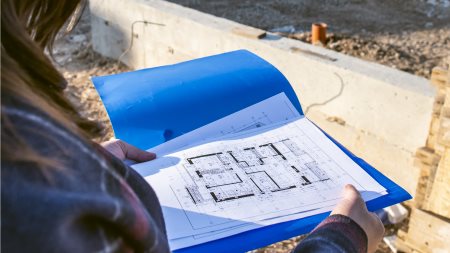Every development goes through a similar process. These steps are “universal”. Smaller projects would have less work at certain steps when compared to others, but for best practice, you should look to complete each step. The seven development project steps are as follows:
Step 1 - DEAL EVALUATION
Step one in any decent deal is running the numbers. An architect and an Estate Agent are the suggested team members to start working with in order to wrap your head around the numbers.
Fundamentally this feasibility study, known as “Deal Evaluation”, examines what potential a deal has, to be financially feasible.
Key factors to consider are:
- Legally, what can you build on the property?
- What does the market want and how much are they willing to pay?
- How much would it cost to buy the land and build the Structures, and exit the opportunity?
Feasibility also allows you to understand what constraints
and limitations the opportunity has, and this is crucial to
your negotiations with the seller and development team.
Step 2 - COMMERCIAL AGREEMENT
Similar to an OTP, a commercial agreement secures the development opportunity.
An attorney who is skilled at developments would be key to contributing to this process. As with all negotiations, an understanding of the law and what options are available to you as a negotiator allows you to better negotiate a deal.
Part of a commercial agreement will lay out a purchase process as well as a due diligence period.
Step 3 - DUE DILLEGENCE
During the due diligence period, you will aim to reduce your risk and conclude any suspensive conditions laid out in the commercial agreement.
Key team members to get involved here are a quantity surveyor, architect, and engineering professional. More plans and costings will be the result of the due diligence period.
Ideally, you have all the theory covered to begin the project.
This due diligence period is usually a period of 30 to 90
days.
Step 4 - PLANNING APPROVAL
Naturally, we aim to build legally permitted structures so your architect will work closely with a town planner to have the plans for the project approved by the city.
There will likely be some revisions in order to have the plans
signed off. Any revisions would likely need input from an
estate agent and the quantity surveyor. Once you have
planning approved you would move on to the most
crucial step.
Step 5 - MARKETING AND PRE-SALES
The most sure-fire way to reduce your risk in any project is to find a client before you finish the product. The goal of pre-sales is to sell as much of the project as off-plan as possible. You should be familiar with this concept - properties are often sold off-plan.
Another way to improve pre-sales is to construct a show
unit that helps buyers better see the outcome of the
project. These pre-sales are key if you are raising finance for
the project.
Step 6 - FINANCING
Once the project has sufficient pre-sales, a development partner or bank would be willing to loan the capital required to pay for construction.
This is usually needed as pre-sales do not result in the transfer
of funds until the project is complete. Finance partners
can also bring to the team their own professionals or
construction team.
Step 7 - PROCEED WITH DEVELOPMENT
Only at this stage are builders and bricks going on site. This is by far the least critical point.
Most of your professional team will need to be involved in this process, but the principal agent or lead architect would be key.
It is at this step where you, as an investor, begin to work on
the next project.
Now that you know about getting started as a developer...
you have considered the 3 main exit strategies...
and you understand the 7 development steps...
The next step in your Developer Investor Guide is to 'Live Well'!
Have a look at the rest of the Quick Guides in our series for 'Property 1st-Timers':
- Renting guide: A guide for tenants
- Buyers guide: Buying your 1st home ...like a pro
- Buy-to-let guide
- Property flipping guide
- Property developer guide
- Student letting guide
- Sellers guide: A guide to selling your property successfully



